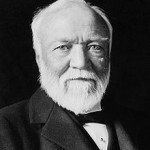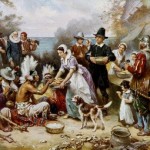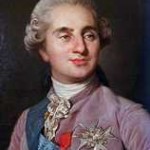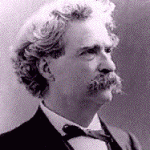This Week in Freethought History (November 24-30)
Here’s your week in Freethought History. This is more than just a calendar of events or mini-biographies – it’s a reminder that, no matter how isolated and alone we may feel at times, we as freethinkers are neither unique nor alone in the world.
Last Sunday, November 24, but in 1632, Portuguese-Jewish philosopher Baruch Spinoza was born. Spinoza’s career path took a sudden turn when his open skepticism about the nature of God, the existence of angels, and the immortality of the soul prompted the rabbis to issue on Spinoza a writ of cherem (חרם), or excommunication – showing that Jews can be just as intolerant of Freethought as Christians. Since he had been expelled from the Jewish community, and Christians rarely associated with Jews, anyway, Spinoza was left alone. His alienation caused him to change his name from “Baruch,” meaning “blessed” – which brings to mind a similarity to the name Barack, the 44th President of the United States, which also means “blessed” – to “Benedict,” meaning “spoken well of” or “praised.” Even in relatively tolerant Holland, Spinoza was persecuted. He was accused of being an Atheist. Spinoza’s religious ideas comprised a nuanced redefinition of God which more closely resembled Pantheism. It was Spinoza who said, “[P]opular religion may be summed up as respect for ecclesiastics.”
Last Monday, November 25, but in 1835, Scottish-American industrialist and philanthropist Andrew Carnegie was born. Hard times in Scotland forced his family to emigrate to the US in 1848. By the close of the American Civil War, Carnegie had organized the Carnegie Steel Company, which brought the industry to Pittsburgh. By age sixty-five, Carnegie had acquired a great fortune – he was considered the richest man in the country – and sold his steel company to J.P. Morgan. Thereafter he devoted his life to philanthropy, giving away over $350,000,000 to found libraries and other public benefits, and saying, “The man who dies rich dies disgraced.” American author and liberal cleric Moncure Daniel Conway, who knew him well, says that Carnegie always described himself as an Agnostic. A Catholic weekly stated that when Carnegie was challenged about his many gifts of church organs he humorously replied that he did this “in the hope that the organ music would distract the congregation’s attention from the rest of the service.” Indeed, Andrew Carnegie abjured “all creeds” and said he was “a disciple of Confucius and Franklin.”
Last Tuesday, November 26, but in 1621, U.S. President Franklin Delano Roosevelt signed into law a bill establishing the fourth Thursday in November as Thanksgiving Day in the United States. Although today this thoroughly American holiday is commemorated by church services and family gatherings, and Presidents George Washington (a Deist) and Abraham Lincoln (a skeptic) both issued religious proclamations in honor of the day, amazingly enough, Thanksgiving Day was originally a secular celebration. The first Thanksgiving, in honor of a bountiful harvest, was in the fall of 1621 – sometime between September 21 and November 11. The Pilgrims of Plymouth colony had a very strict definition of what constitutes a religious holiday: to the Pilgrims, a thanksgiving was a religious holiday for going to church and thanking God for a specific blessing. But the three days of feasting, dancing, singing and game-playing at the first Thanksgiving would not have fit the decorum dictated by Pilgrim piety. The Pilgrims surrounded themselves on that day with the true founders of the feast – not God, but the Native Americans who helped them survive the harsh winter of 1620-1621. The chief virtue of Thanksgiving Day in modern times is that it can just as easily be celebrated without the plastic veneer of piety, if you and yours happen to be happy and healthy. American Freethinkers celebrate Thanksgiving Day simply as a day of gratitude that loved ones can be near and prosperity at hand. But there is no reason to raise your hands to God when so many of our fellow human beings need a hand!
Last Wednesday, November 27, but in 1940, Chinese-American martial artist, actor, founder of Jeet Kune Do, Bruce Lee (李小龍) was born. In Hong Kong, Lee studied Wing Chun style martial arts, presumably because he kept getting into, and losing, street fights. Lee returned to the city of his birth, San Francisco, in 1959. After some moderate success in supporting roles on American TV shows, such as “Green Hornet” (1966-1967) and “Batman” (1966), Lee returned to Hong Kong and took leading roles in The Big Boss (1971) and Fist of Fury (1972). Lee achieved creative control for his third film, Way of the Dragon (1972) and much box office success. The next year, 1973, Lee starred in Enter the Dragon. Around 1967, Lee developed a fighting style-without-a-style which he called “Jeet Kune Do” (截拳道) that was particularly suited to street fighting. Author John Little, writing in The Warrior Within: The Philosophies of Bruce Lee (1996), said, “Lee felt that anything which substituted the ways or beliefs of others in the place of teaching you how to cultivate your own was a step in the wrong direction. For this reason, Lee was opposed to the doctrines – or rather the dogmas – of organized religion.” In an interview videotaped in the summer of 1972, journalist Alex Ben Block (author of The Legend of Bruce Lee, 1974) asked Lee what his religious affiliation is. Lee answered, “None whatsoever.” Pressing further on whether or not he believes in God, Lee replied, “To be perfectly frank, I really do not.”
Last Thursday, November 28, but in 1943, American songwriter and singer Randy Newman was born. Besides charting his own recordings, such as “Short People” (1977) and “Baltimore” (1978), Joe Cocker covered his song “You Can Leave Your Hat On” (from The Full Monty, 1997) and Three Dog Night covered “Mama Told me Not to Come.” Newman wrote songs for such films “Burn On” from Major League (1989), “I Love to See You Smile” from Parenthood (1989), “Mr. President – Have Pity on the Working Man” from Forrest Gump (1994) and “Lonely At The Top” from You’ve Got Mail (1998). In spite of that distinguished list, it wasn’t until his 16th songwriter nomination that Randy Newman took home a gold Oscar statue for the song “If I Didn’t Have You,” from the 2001 film Monsters, Inc. Randy Newman’s fan website, operated by Jim Coan, quotes his father as saying Randy Newman lost his faith, if he ever had any, at age nine or ten. Newman himself speaks of his atheism in many interviews, saying in one, “I never had faith. … But I have respect for the idea. There’s no joy being an atheist.” Some of his lyrics, especially from his 1972 album Sail Away, tell the same story:
And the Lord said: I burn down your cities – how blind you must be
I take from you your children and you say how blessed are we
You all must be crazy to put your faith in me
That’s why I love mankind…
You really need me…
That’s why I love mankind.
—“God’s Song”
Yesterday, November 29, but in 1787, King Louis XVI (1754-1793) promulgated an edict of tolerance, granting civil status to Protestants under French law. French Protestants, then called Huguenots, had gained toleration a century before for their religious beliefs (and respite from the Wars of Religion) with the Edict of Nantes, issued on 13 April 1598 under Henry IV. But 87 years later, Louis XIV, under the influence of his Catholic confessors, revoked the Edict. So it had taken 102 years for French Protestants – those who had chosen to remain in France after Nantes was revoked – to regain toleration. What is toleration? Catholics consider religious toleration a “patient forbearance in the presence of an evil which one is unable or unwilling to prevent.” And that idea springs from the arrogant assumption that any one church holds not only the truth, but all of the truth, forever and unchanging, and that no other religion contains any truth (about which John Stuart Mill warned us).
Of course, Atheism was never tolerated in any age until our own, and then only just barely. King Louis went only halfway in his nod to freedom of religion in 1787, as there is no true freedom of religion until there is freedom from religion – and in the 300-some years since that edict of tolerance, although no one in the civilized world dies for disagreeing anymore, humanity has taken only small steps toward discarding the notion that loyal citizens must serve the most popular God.
Today, November 30, but in 1835, American writer and humorist Mark Twain was born. Brought up in Hannibal, Missouri, he first encountered writers by apprenticing to a printer, but he became a Mississippi riverboat pilot and adopted his pen-name from the call – “Mark twain!” meaning two fathoms – used when sounding river shallows. Early on, Twain’s humor took an irreverent turn: “I believe that our Heavenly Father invented man because he was disappointed in the monkey,” he wrote. Having heard a tale about a frog-jumping contest, he eventually developed it into his signature humor story, “The Celebrated Jumping Frog of Calaveras County” (1867). Between 1876 and 1884 he published his most memorable works: Tom Sawyer (1881), The Prince and the Pauper (1881), Life on the Mississippi (1883), and Huckleberry Finn (1884). In such works as “Christian Science” (1903), “Eve’s Diary” (1906), and “The Mysterious Stranger” (1918), Twain shows his disdain of Christianity. But his 1906 work, “What is Man?” shows the greatest American humorist as solidity skeptical. He has his character Pudd’nhead Wilson quip, “Faith is believing what you know ain’t so.” In one letter, he equates Jesus and Satan: “These two gentlemen,” he says, “have had more influence than all others put together, and 99 percent of it was Satan’s.” The Devil, he goes on, is “worth very nearly a hundred times as much to the business as was the influence of all the rest of the Holy Family put together.” In his posthumously published (1962) “Letters from Earth” he writes:
Man is a marvelous curiosity … he thinks he is the Creator’s pet … he even believes the Creator loves him; has a passion for him; sits up nights to admire him; yes and watch over him and keep him out of trouble. He prays to him and thinks He listens. Isn’t it a quaint idea?
Other birthdays and events this week—
November 27: Pope Urban II declared the First Crusade at the Council of Clermont (1095).
November 28: British writer, and the first editor of the Dictionary of National Biography (1885-1891), Sir Leslie Stephen was born (1832).
We can look back, but the Golden Age of Freethought is now. You can find full versions of these pages in Freethought history at the links in my blog, FreethoughtAlmanac.com.








